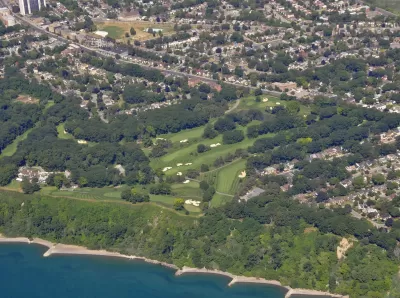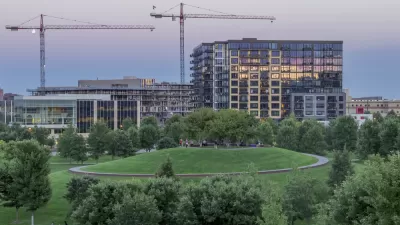Amid calls to convert the city's golf courses to other uses, Toronto, Ontario city staff are trying to figure out a middle ground between competing interests.

Jennifer Pagliaro previews an impending report by Toronto city staff to plan for an "improved status quo model" for the city's five public golf courses
In the process of creating the report, Toronto is attempting to balance two ardent political bases: those who want public land devoted to golf in the city converted to open space and agricultural uses, and those who want to protect the public's access to the game.
According to Pagliaro, the report headed to the Toronto City Council's Infrastructure and Environment Committee is a first step toward balancing those competing interest, but the report still favors the future of publicly owned golf courses in the city. For instance, "the report contains no clear direction on plans to improve environmental sustainability and what the other recreational uses might be" (in the "improved status quo").
The report is really a plan to start planning. "A process for a request for proposal on future operations would be started if council supports the plan, with the goal of implementing those yet-to-be-defined models for the 2024 season," according to Pagliaro.
A lot more detail about the considerations going into the continued priority on golf, and the potential for other uses, in the specific context of these five courses are included in the source article below. Environmental, social, demographic, and financial considerations are discussed.
FULL STORY: Will Toronto tee up changes to city-run golf courses, amid demands for green space?

Planetizen Federal Action Tracker
A weekly monitor of how Trump’s orders and actions are impacting planners and planning in America.

San Francisco's School District Spent $105M To Build Affordable Housing for Teachers — And That's Just the Beginning
SFUSD joins a growing list of school districts using their land holdings to address housing affordability challenges faced by their own employees.

The Tiny, Adorable $7,000 Car Turning Japan Onto EVs
The single seat Mibot charges from a regular plug as quickly as an iPad, and is about half the price of an average EV.

Seattle's Plan for Adopting Driverless Cars
Equity, safety, accessibility and affordability are front of mind as the city prepares for robotaxis and other autonomous vehicles.

As Trump Phases Out FEMA, Is It Time to Flee the Floodplains?
With less federal funding available for disaster relief efforts, the need to relocate at-risk communities is more urgent than ever.

With Protected Lanes, 460% More People Commute by Bike
For those needing more ammo, more data proving what we already knew is here.
Urban Design for Planners 1: Software Tools
This six-course series explores essential urban design concepts using open source software and equips planners with the tools they need to participate fully in the urban design process.
Planning for Universal Design
Learn the tools for implementing Universal Design in planning regulations.
Smith Gee Studio
City of Charlotte
City of Camden Redevelopment Agency
City of Astoria
Transportation Research & Education Center (TREC) at Portland State University
US High Speed Rail Association
City of Camden Redevelopment Agency
Municipality of Princeton (NJ)





























